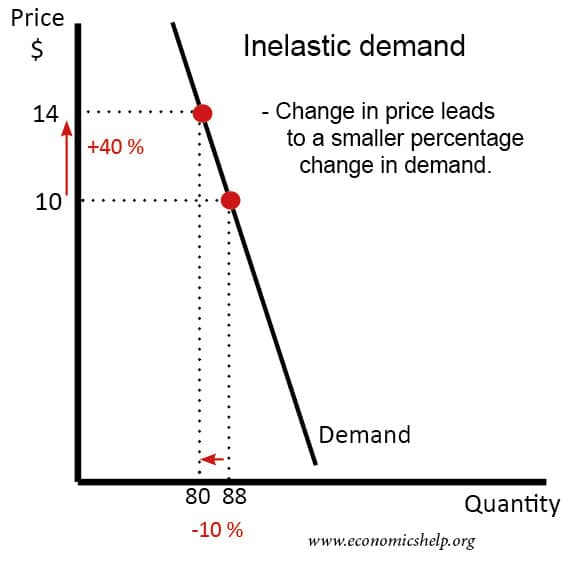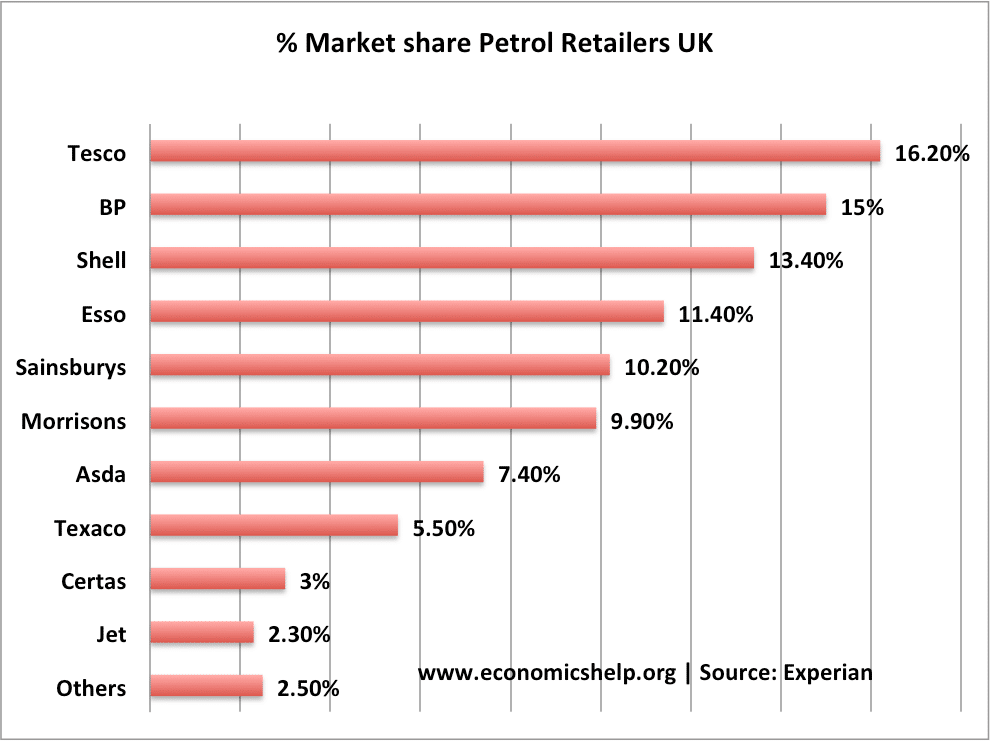Readers Question: Discuss the relationship between elasticity and market power’ in terms of the retail petrol market. And then it says ’use common determinant of both’, whatever that means?
- Demand for petrol is quite inelastic. If you have a car, there are not many alternatives to buying petrol. This is why the increased price of petrol has failed to reduce demand for petrol significantly. (there is an estimated PED of petrol of -0.1 in the short term)
- However, if you are a car owner you don’t really mind who you buy petrol from. Esso petrol is not really any different to petrol from Tesco. Therefore, consumers are sensitive to changes in prices for an individual petrol station.
- If there are many petrol stations close by – the petrol companies will find that their demand is elastic. Increasing price could lead to a loss of market share.
- However, if you are the only petrol station in a rural area or if you are a petrol station on a motorway, you have a lot more market power. A motorist is not going to exit the motorway just to avoid paying motorway prices. Therefore, in these locations the petrol stations have more market power, consumers less choice, demand inelastic; and this is why petrol is more expensive.
Market share of petrol
This shows that the market for petrol is reasonably competitive
And then it says ’use common determinant of both’, whatever that means ??
- Maybe it means that the higher the market share the lower the PED. the less market power a petrol station has the more elastic demand is.
Related


